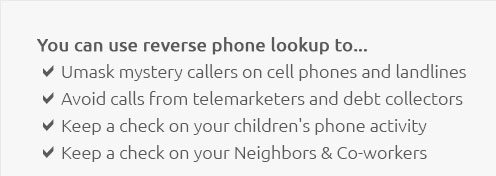 |
 |
 |
|---|
 |
 |
|---|---|
|
|
 |
|
|---|---|
 |
 |
 |
 |
 |
 |
|---|---|
 |
|
Understanding the Concept of Reverse Mobile PhonesIn today's fast-paced technological landscape, where the latest smartphone models boast advanced features and cutting-edge designs, the notion of a reverse mobile phone might seem perplexing at first. Yet, as we delve into this intriguing concept, it becomes apparent that it serves a unique purpose in our increasingly digital world. Essentially, a reverse mobile phone refers to devices or services that enable individuals to identify the owner of a phone number, often through reverse lookup services. This concept has gained traction among those seeking to enhance their personal safety, manage unwanted calls, or simply satisfy their curiosity about unknown numbers. As we navigate the complexities of modern communication, it's important to recognize the subtle opinions that arise regarding privacy and accessibility. While some argue that reverse mobile services empower individuals by providing them with valuable information, others raise concerns about potential invasions of privacy and the ethical implications of accessing such data. This dichotomy highlights the delicate balance between technological convenience and personal privacy, a theme that resonates throughout the broader discourse on digital rights. Reverse mobile phone services typically operate through online platforms or dedicated apps, which allow users to input a phone number and receive information about the caller's identity. These services often compile data from public records, social media profiles, and other accessible sources to provide comprehensive results. While the accuracy and reliability of these services can vary, they generally offer a useful tool for those seeking to avoid spam calls or identify persistent unknown numbers. However, it is essential for users to remain discerning, as the reliance on publicly available information means that the data may not always be up-to-date or entirely accurate. For individuals concerned about privacy, the availability of reverse mobile phone services might raise alarms. The idea that one's phone number could be linked to personal details accessible to strangers is understandably disconcerting. Consequently, the ethical considerations surrounding these services cannot be ignored. Critics argue that the ease of accessing such information could potentially be exploited for nefarious purposes, such as harassment or identity theft. As with many technological advancements, the responsibility falls on both providers and users to ensure that these services are utilized ethically and securely. In addition to privacy concerns, there are also discussions about the potential benefits of reverse mobile phone services. Supporters highlight the empowerment these tools provide to users who can take control of their communication by filtering unwanted calls and recognizing legitimate contacts. This empowerment extends to businesses as well, where reverse lookup services can aid in verifying customer information, thereby enhancing customer relations and ensuring a higher level of service. The debate surrounding reverse mobile phones encapsulates the broader conversation about technology's role in our lives. As we continue to integrate digital solutions into our daily routines, the question of how to balance convenience with ethical considerations remains at the forefront. In this context, reverse mobile phones represent a microcosm of the larger dialogue about privacy, security, and the responsible use of technology.
Ultimately, the concept of reverse mobile phones invites us to reflect on how we interact with technology and the measures we take to protect our privacy in an ever-connected world. As we embrace the benefits of digital advancements, it is crucial to remain vigilant and informed, ensuring that we use these tools responsibly and ethically. In doing so, we can harness the potential of reverse mobile phone services to enhance our lives while safeguarding our personal information from unintended exposure. https://play.google.com/store/apps/details?id=com.clever.co.apps.developers.reverse_phone_Lookup&hl=en_US
Reverse Phone Lookup Reverse Phone Lookup is a free reverse phone number lookup app that enables users to look up phone numbers to find the name or Caller ... https://oklahoma.phonenumbers.org/
Phone user preferences have shifted from landlines to mobile and wireless phones. https://www.truecaller.com/reverse-phone-number-lookup
With Truecaller's reverse phone lookup tool, you can now simply type the caller's number in the search bar above and find out who called you within seconds!
|
|---|